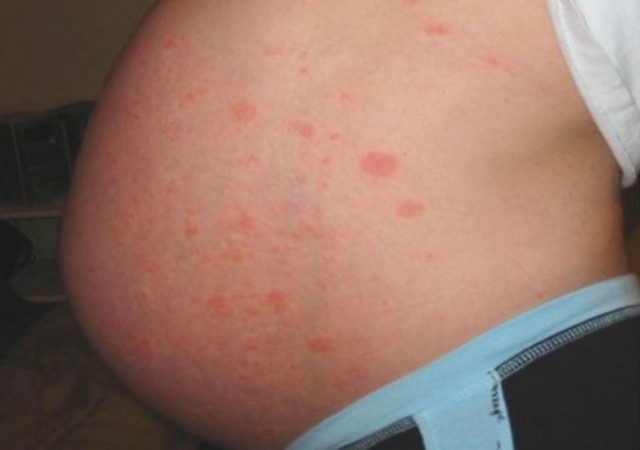
Pregnancy is a period of significant change for women, involving both physical and hormonal transformations. Among these changes, some women experience skin issues, including rashes and acne. These skin conditions, though common, can be concerning. Understanding their causes and preventive measures can help manage these symptoms effectively.
Causes of Rashes and Acne During Pregnancy
Hormonal Changes: Pregnancy triggers a surge in various hormones, particularly estrogen and progesterone. These hormonal shifts can lead to increased oil production in the skin, clogging pores and causing acne and rashes.
Increased Blood Flow: As the body supports the growing fetus, blood volume and flow increase, which can sometimes lead to skin redness and rashes.
Immune System Changes: Pregnancy alters the immune system, sometimes causing it to overreact to allergens or irritants, leading to rashes.
Heat and Sweat: Pregnant women often feel warmer due to increased blood flow and metabolic rate. This can result in excessive sweating, which can lead to heat rashes, particularly in areas where skin folds or rubs together.
Dietary Changes: Cravings and aversions during pregnancy can lead to changes in diet, sometimes increasing the intake of foods that may trigger skin issues.
Stress: Emotional and physical stress during pregnancy can exacerbate skin conditions like acne and rashes.
Medications: Some medications prescribed during pregnancy can cause allergic reactions or skin sensitivities, leading to rashes.
Preventive Measures and Management
Maintain Proper Hygiene: Regular bathing and changing into clean, dry clothes can prevent sweat and dirt buildup, reducing the risk of heat rashes and acne.
Choose Gentle Skin Products: Use mild, fragrance-free soaps and lotions to avoid skin irritation. Avoid products with harsh chemicals that can aggravate sensitive skin.
Stay Hydrated: Drinking plenty of water helps keep the skin hydrated and can flush out toxins that might contribute to acne.
Wear Comfortable Clothing: Loose, breathable fabrics like cotton can help prevent sweat accumulation and reduce the risk of heat rashes.
Balanced Diet: Eating a well-balanced diet rich in fruits, vegetables, and whole grains can promote healthy skin. Limit the intake of sugary, greasy, and dairy-heavy foods that might exacerbate acne.
Monitor Medications: Always consult with a healthcare provider before taking any medication during pregnancy to ensure it does not cause adverse skin reactions.
Manage Stress: Practice stress-relieving activities such as prenatal yoga, meditation, or gentle exercise to keep stress levels in check.
Avoid Scratching: If you develop a rash, avoid scratching to prevent infection and worsening of the condition. Instead, use soothing lotions or prescribed ointments.
When to Seek Medical Advice
While mild rashes and acne can often be managed with home care, it’s essential to consult a healthcare provider if:
The rash or acne is severe or widespread.
There is intense itching, pain, or discomfort.
You notice signs of infection, such as pus, increased redness, or swelling.
Over-the-counter treatments do not provide relief.
Skin changes, including rashes and acne, are common during pregnancy due to hormonal shifts, increased blood flow, dietary changes, and other factors. By maintaining good hygiene, choosing appropriate skincare products, staying hydrated, and managing stress, many of these skin issues can be prevented or alleviated. Always consult with a healthcare provider for persistent or severe skin problems to ensure the health and well-being of both mother and baby.
Rising Obesity- Urgent Action Needed for a Healthier India: Economic Survey 2024
Monsoon Blues: Understanding Monsoon Depression
High Alert Issued in Kerala After Death of 14-Year-Old Boy from Nipah Virus